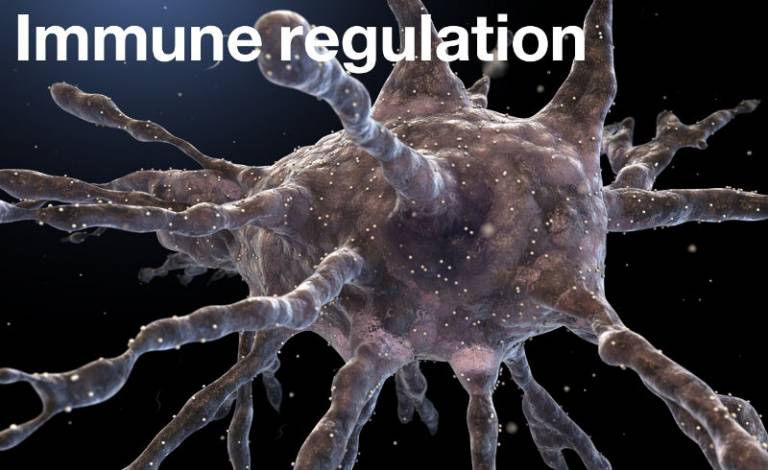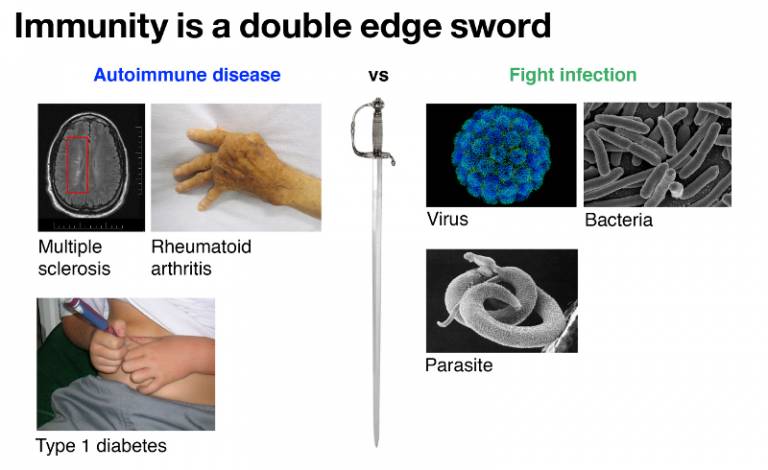Find out about the Institute's research on immune regulation.

The immune system is made up of a complex network of cells which protect us against infection from otherwise life threatening pathogens. It is a powerful force, which must be carefully regulated to prevent damage to the host.
Variation in our genes and changes in the environment (such as alteration in our microbiota, changes in diet or exposure to sunlight) can influence the balance of our immune system, and as such, the way in which it responds to pathogenic threat.

An unfortunate side effect of immune protection can be autoimmunity. Autoimmunity occurs when regulation of the immune system breaks down and host tissues are targeted causing their destruction. In order to provide the best protection for a wide range of threats, the immune system has evolved a broad range of response types.
Each T-helper type recruits a different mix of effector or regulatory mechanisms (often by the secretion of cytokines). Understanding the type of response which causes a particular autoimmune disease helps us develop the best strategies for their prevention and control.
Work carried out by our group has recently shown T-follicular helper cells (Tfh) to be an important by-component of the immune response involved in Type 1 diabetes. These cells produce the sytokine IL-21 which is able to inhibit regulator T-cells via the inhibition of IL-2 production.
CTLA-4 is an effector molecule found on the surgace of activated regulatory and conventional T-cells. Its role is to remove co-stimulatory ligands (CD80 and CD86) from the surface of antigen presenting cells. These cells are thus rendered less able to initate a response.
 Close
Close

